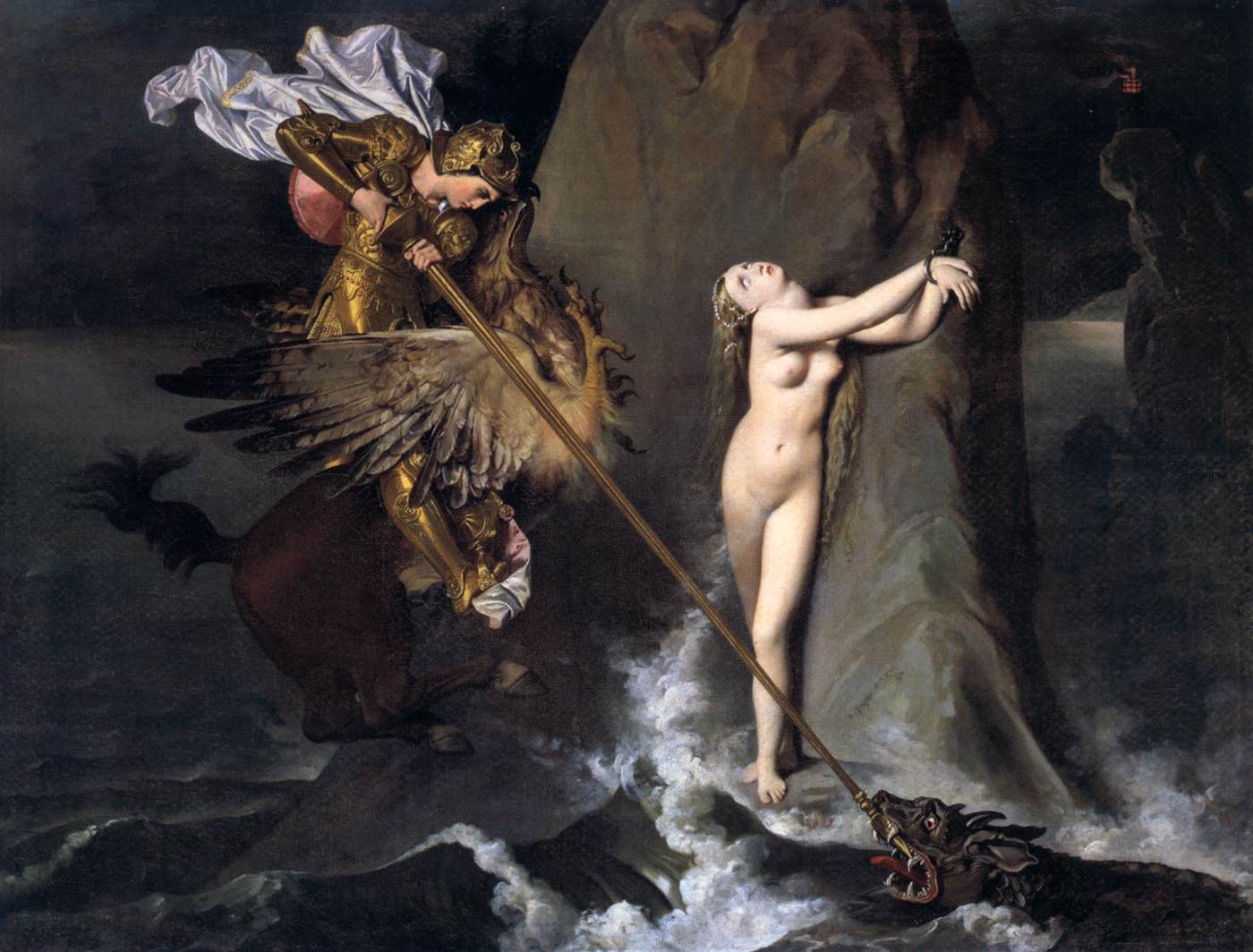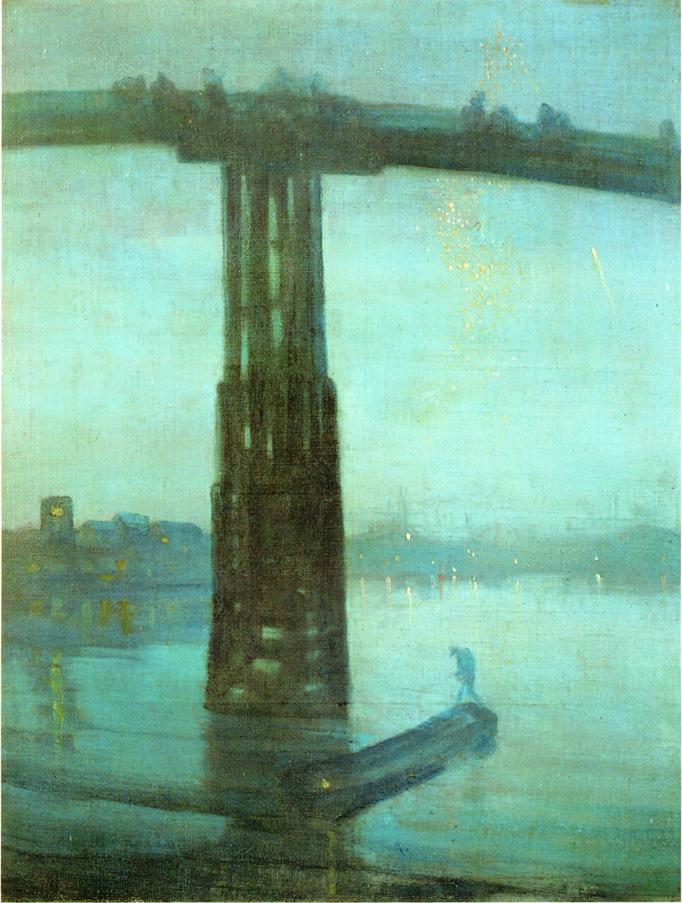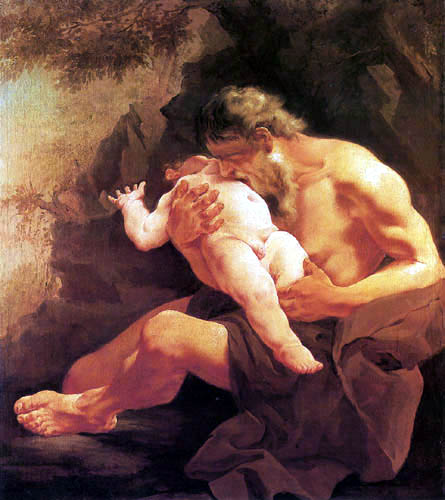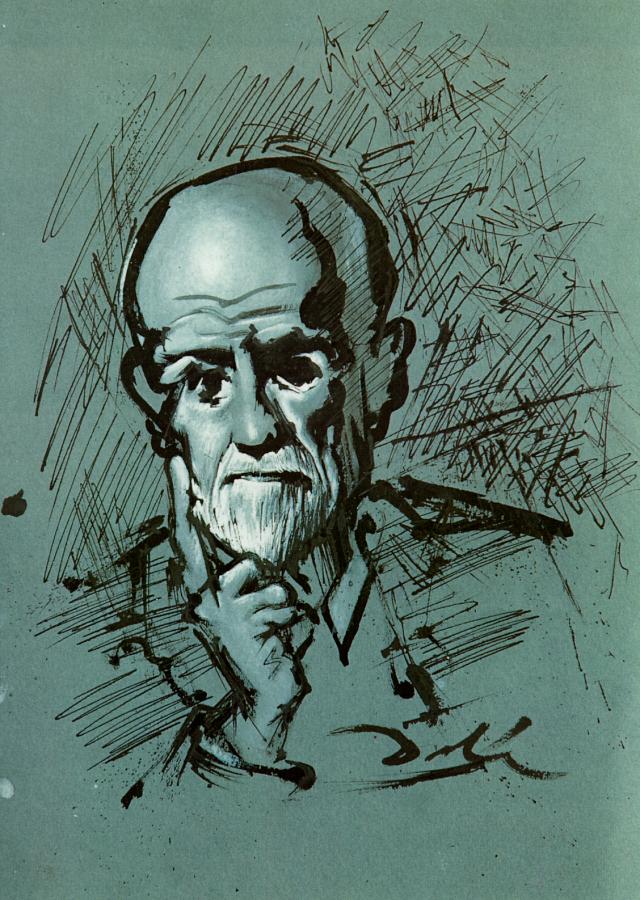THE FAMOUS ORIGINAL QUOTE:
"If God did not exist, it would be necessary to invent him."
François-Marie Arouet (aka Voltaire), the great French critic, poet, historian, and writer of timeless witticisms. He first used this in a poem, entitled "Epistle to the Author of the Book the Three Imposters", in response to an earlier atheistic manuscript written anonymously which denied the validity of the Abrahamic (Jewish, Christian, and Muslim) religions. Voltaire was more of a Deist than a traditional Christian, but felt strongly that a belief in God and fear of God’s divine retribution against evildoers was necessary to deter crime, maintain social order and restrain excesses by those in power. He later wrote: “If God did not exist it would be necessary to invent him. But all nature cries aloud that he does exist; that there is a supreme intelligence, an immense power, an admirable order, and everything teaches us our own dependence on it.”
A Skeptic's Adaptaion:
“Reason tells us that if the skeptic did not exist it would be necessary to invent him.”
-- Frater H.J. Hershenow, F.R.C.
Bob Dylan's Version:
“If I didn’t exist, someone would have to have invented me.”
From his autobiographical book Chronicles: Volume One (2004)
The Doctor Who Variation:
“If heroes do not exist, it is necessary to invent them. Good for public morale.”
Cardinal Borusa (actor Angus MacKay)
Sunday, August 28, 2011
Sunday, June 12, 2011
Eastern Treatments of Truth
The story of the blind men and an elephant originated in India from where it is widely diffused. It has been used to illustrate a range of truths and fallacies. At various times it has provided insight into the relativity, opaqueness or inexpressible nature of truth, the behaviour of experts in fields where there is a deficit or inaccessibility of information, the need for communication, and respect for different perspectives.
In various versions of the tale, a group of blind men (or men in the dark) touch an elephant to learn what it is like. Each one feels a different part, but only one part, such as the side or the tusk. They then compare notes and learn that they are in complete disagreement.
The stories differ primarily in how the elephant’s body parts are described, how violent the conflict becomes and how (or if) the conflict among the men and their perspectives is resolved.
Image: "Blind monks examining an elephant" by Hanabusa Itchō
I APOLOGIZE FOR THE SPORADICNESS OF THE POSTS OF LATE AND WILL POST MORE SOON.
Tuesday, February 15, 2011
Roger Freeing Angelica -- Ingres
LARGER VERSION VIEWABLE HERE. I WOULD ADVISE YOU LOOK AT IT, BECAUSE IT IS BEAUTIFUL
And the not-whatsoever-related poem to accompany the painting: La Belle Dame Sans Merci, by Keats:
Oh what can ail thee, knight-at-arms,
Alone and palely loitering?
The sedge has withered from the lake,
And no birds sing.
Oh what can ail thee, knight-at-arms,
So haggard and so woe-begone?
The squirrel's granary is full,
And the harvest's done.
I see a lily on thy brow,
With anguish moist and fever-dew,
And on thy cheeks a fading rose
Fast withereth too.
I met a lady in the meads,
Full beautiful - a faery's child,
Her hair was long, her foot was light,
And her eyes were wild.
I made a garland for her head,
And bracelets too, and fragrant zone;
She looked at me as she did love,
And made sweet moan.
I set her on my pacing steed,
And nothing else saw all day long,
For sidelong would she bend, and sing
A faery's song.
She found me roots of relish sweet,
And honey wild, and manna-dew,
And sure in language strange she said -
'I love thee true'.
THE REST OF THE POEM CAN BE FOUND HERE
Friday, February 11, 2011
The Death of Leonardo Da Vinci -- Ingres
Feel free to compare to the Death of Marat, the Burial of Atala (both previously featured!), and the Death of General Wolfe by Benjamin West. Here's a poem by Dylan Thomas that befits these macabre subjects:
And death shall have no dominion.
Dead mean naked they shall be one
With the man in the wind and the west moon;
When their bones are picked clean and the clean bones gone,
They shall have stars at elbow and foot;
Though they go mad they shall be sane,
Though they sink through the sea they shall rise again;
Though lovers be lost love shall not;
And death shall have no dominion.
And death shall have no dominion.
Under the windings of the sea
They lying long shall not die windily;
Twisting on racks when sinews give way,
Strapped to a wheel, yet they shall not break;
Faith in their hands shall snap in two,
And the unicorn evils run them through;
Split all ends up they shan't crack;
And death shall have no dominion.
And death shall have no dominion.
No more may gulls cry at their ears
Or waves break loud on the seashores;
Where blew a flower may a flower no more
Lift its head to the blows of the rain;
Though they be mad and dead as nails,
Heads of the characters hammer through daisies;
Break in the sun till the sun breaks down,
And death shall have no dominion.
Friday, February 4, 2011
Romanticism: Caspar David Friedrich
Edmund Burke's notion of nature's sublime power to evoke a sense of mystery and loss of self is most consistently expressed in the paintings of the German Romantic, Caspar David Friedrich. For Friedrich, the sublime included the appeal of lunar folklore, myth, and German nationalism. He was particularly attracted to the theme of figures contemplating the moon, like the above painting, Moonrise over the Sea. Notice that the figures are silhouetted so that their identity becomes absorbed into the forms of nature. This sense of unity with nature, compounded by the haunting setting, conveys the figures' Romantic character.
The above painting, The Stages of Life, is a meditation on the artist's own mortality, depicting five ships at various distances from the shore. The foreground similarly shows five figures at different stages of life.
Monday, January 31, 2011
The Old Battersea Bridge -- Whistler
All this, of course, is with the exception of Whistler's most famous painting, which, if you want the inside tip, is the worst painting in the world.
Saturday, January 29, 2011
Wednesday, January 26, 2011
Gaspard de la Nuit -- Ravel
This is an excellent work by Maurice Ravel (pictured left), though he is not one of my most prized composers. It consists of three movements, each based on a poem from a collection (also titled "Gaspard de la Nuit") by Aloysius Bertrand (pictured right). Regrettably, I couldn't find any free on-line translations of the poems (let alone well-done translations). If any among you are interested to search, you won't hesitate to leave a comment indicating where it is.
The work as a whole comprises some of the most technically challenging music for piano solo in standard repertoire (meaning no random obscure modern composers like Sorabji and Finnissy, both of whom wrote practically impossible pieces; however these are very obscure and modern and thus not considered "standard repertoire"). In fact, Ravel wrote it to be intentionally more difficult than Balakirev's Islamey, which was considered probably the most difficult piece before that point. I will most likely make a post about Islamey in the future.
My favorite of the three movements is the first one, Ondine (pictured center). Here is the best recording I could find. I think this particular piece is incredibly subtle, and is not emotionally straightforward. To me, the entire piece is a contrast between a certain fantastical grace or beauty and then a dark, ghoulish underside. It seems to me that much of the higher themes and parts played by the right hand mark the graceful side of the piece, whereas the deeper, more sinister left-hand parts stand in stark contrast and provide those hints of something fiendishly mischievous at work.
Still more compelling is the notion of seduction and its relevance to the piece. Supposedly, the poem by Bertrand on which this movement was based (also titled "Ondine") described a water-fairy who attempted to seduce men and lead them to her underwater kingdom. This is obviously derived from mythological origins, as an Ondine was a nymph-like creature; and it was said that, if her husband was unfaithful, the Ondine would curse him so that he would suffocate the next time he went to sleep. In both of these notions of "Ondine," it is clear to me that the beauty of the Ondine is not so much a Platonic, "pure" kind of beauty, but rather a seductive one. To me, Ravel succeeds magnificently in expressing this idea of seduction musically.
Lastly, I enjoy how the texture of the piece mimics the warbling sound of trickling water, and in the more intense sections, sounds more like waves as one would hear at the ocean. This is a fantastic touch that also contributes to the accuracy with which the piece captures the subject of the poem.
The other two movements of the work are worthy of equally lengthy analysis because they are also (in my opinion) masterfully executed; however, I chose to write about the first movement simply because it appeals to me most personally. Perhaps at a later date I'll write posts about the other two movements. Only maybe not the second one, which is quite disturbing and I oftentimes find it hard to listen to in full.
Friday, January 21, 2011
Saturn Devouring His Son -- Goya, Rubens, Tiepolo
Depicting the Ancient Greek myth of the Titan Cronus (Roman name: Saturn) who ate each of his children after learning from Gaia and Uranus that he was to be overthrown as king of the world by one of his children (as he overthrew his own father). Spooky, spooky stuff.
The first is Goya's rendition followed by that of Tiepolo and Rubens.
The first is Goya's rendition followed by that of Tiepolo and Rubens.
Sunday, January 16, 2011
Preludes -- Eliot
I
The winter evening settles down
With smell of steaks in passageways.
Six o'clock.
The burnt-out ends of smoky days.
And now a gusty shower wraps
The grimy scraps
Of withered leaves about your feet
And newspapers from vacant lots;
The showers beat
On broken blinds and chimneypots,
And at the corner of the street
A lonely cab-horse steams and stamps.
And then the lighting of the lamps.
II
The morning comes to consciousness
Of faint stale smells of beer
From the sawdust-trampled street
With all its muddy feet that press
To early coffee-stands.
With the other masquerades
That times resumes,
One thinks of all the hands
That are raising dingy shades
In a thousand furnished rooms.
III
You tossed a blanket from the bed
You lay upon your back, and waited;
You dozed, and watched the night revealing
The thousand sordid images
Of which your soul was constituted;
They flickered against the ceiling.
And when all the world came back
And the light crept up between the shutters
And you heard the sparrows in the gutters,
You had such a vision of the street
As the street hardly understands;
Sitting along the bed's edge, where
You curled the papers from your hair,
Or clasped the yellow soles of feet
In the palms of both soiled hands.
IV
His soul stretched tight across the skies
That fade behind a city block,
Or trampled by insistent feet
At four and five and six o'clock;
And short square fingers stuffing pipes,
And evening newspapers, and eyes
Assured of certain certainties,
The conscience of a blackened street
Impatient to assume the world.
I am moved by fancies that are curled
Around these images, and cling:
The notion of some infinitely gentle
Infinitely suffering thing.
Wipe your hand across your mouth, and laugh;
The worlds revolve like ancient women
Gathering fuel in vacant lots.
Probably the most typical Eliot on the planet. Appeared along The Love Song of J. Alfred Prufrock, which is (in the opinion of this blogger) the greatest poem ever written by anybody, but will never appear on The Body Electric because of its monstrosity, and it would also make everything else look bad by comparison. But if you've enjoyed this and other Eliot, click the above hyperlink. BUT DON'T TAKE MY WORD FOR IT.
Sunday, January 9, 2011

Brahma
by Ralph Waldo Emerson
If the red slayer think he slays,
Or if the slain think he is slain,
They know not well the subtle ways
I keep, and pass, and turn again.
Far or forgot to me is near;
Shadow and sunlight are the same;
The vanished gods to me appear;
And one to me are shame and fame.
They reckon ill who leave me out;
When me they fly, I am the wings;
I am the doubter and the doubt,
I am the hymn the Brahmin sings.
The strong gods pine for my abode,
And pine in vain the sacred Seven;
But thou, meek lover of the good!
Find me, and turn thy back on heaven.
Pictured above: Morris Graves, Hibernation 1954
Tuesday, January 4, 2011
Portrait of Freud -- Dali
“[It was intended] to express for the first time in images Freud’s discovery of the typical dream with a lengthy narrative, the consequence of the instantaneousness of a chance event which causes the sleeper to wake up. Thus, as a bar might fall on the neck of a sleeping person, causing them to wake up and for a long dream to end with the guillotine blade falling on them, the noise of the bee here provokes the sensation of the sting which will awaken Gala.”
You can read an essay about Dali's connection with Freud here.
Subscribe to:
Posts (Atom)



















